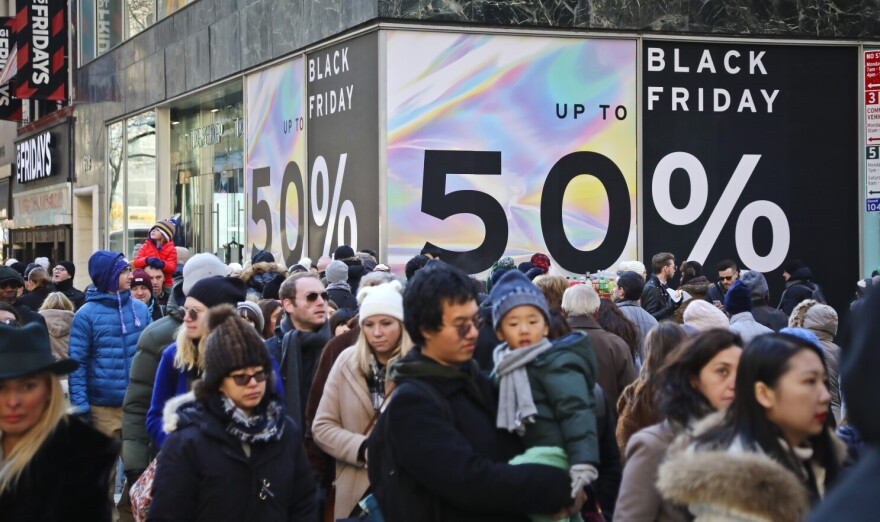In 1869, financiers Jay Gould and James Fisk tried to corner the gold market by buying up gold to drive prices higher, but the scheme backfired, and the gold market crashed on Sept. 24, 1869, leading the day to be called Black Friday.
The term’s use in relation to shopping the day after Thanksgiving is most often traced to Philadelphia, where it's credited to police who had to deal with large crowds who thronged the city's streets before the annual Army-Navy game and took advantage of sales.
According to the Dec. 18, 1961, issue of Public Relations News, a newsletter, it became customary for police to refer to post-Thanksgiving shopping as Black Friday and Black Saturday because of the headaches it caused.
A 1975 Associated Press article quotes a sales manager at Gimbels department store who was watching a police officer try to control jaywalkers the day after Thanksgiving. “That’s why the bus drivers and cab drivers call today ‘Black Friday. They think in terms of headaches it gives them,” she said.
Michael Lisicky, who has written several books on the history of department stores, confirmed in an email that “Black Friday” was tied to Philadelphia police officers trying to control crowds after Thanksgiving.
“I have never come across the connotation that Black Friday originates from the selling of slaves, especially on the day after Thanksgiving,” Lisicky said.
The term has also been used by retailers who say that Black Friday represents the time when they go from operating in the red to the black as sales boost profits.


